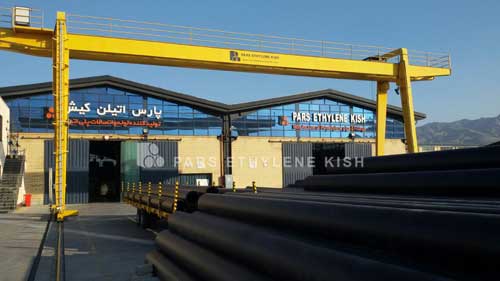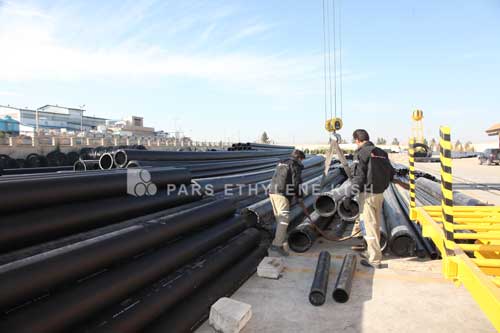How much is polyethylene pipe life expectancy?
From water supply to gas distribution and beyond, polyethylene pipes have become a vital component in various applications. With their durability, flexibility, and resistance to corrosion, these pipes have revolutionized the way we transport fluids and gases.
But have you ever wondered about their life expectancy? How long can we rely on these pipes before they wear out? In this age of ever-evolving technology, the answer might surprise you.
Let's delve deeper into the world of polyethylene pipes and explore their life expectancy in more detail.
Polyethylene pipe life expectancy
Polyethylene (PE) pipes are commonly used in a wide range of applications, including water supply, gas distribution, and irrigation systems. The life expectancy of a polyethylene pipe depends on various factors such as the quality of the material, the design of the pipe, the installation process, and the environmental conditions.
Generally, polyethylene pipes have a long service life and can last for more than 50 years under normal operating conditions. Some manufacturers even offer warranties for up to 100 years.
However, the actual life expectancy of a polyethylene pipe depends on several factors such as the following:
-
Quality of the material: Polyethylene pipes made from high-quality materials are likely to have a longer service life than those made from low-quality materials.
-
Design of the pipe: The design of the pipe, including its wall thickness and the type of joint used, can also affect its life expectancy.
-
Installation process: Proper installation is critical for the long-term performance of a polyethylene pipe. If the pipe is not installed correctly, it can result in premature failure.
-
Environmental conditions: The operating environment can also affect the life expectancy of a polyethylene pipe. Exposure to UV radiation, chemicals, and extreme temperatures can cause the pipe to degrade over time.
In summary, the life expectancy of a polyethylene pipe can range from 50 to 100 years, depending on various factors. Regular maintenance and proper installation can help to ensure the pipe's long-term performance.

How many types of polyethylene pipes are there?
There are several types of polyethylene pipes, and they are typically classified based on their density and molecular structure. The most common types of polyethylene pipes are:
-
High-density polyethylene (HDPE): This type of polyethylene pipe has a high density and is known for its strength, durability, and resistance to chemicals and UV radiation. HDPE pipes are commonly used in gas distribution and water supply systems.
-
Medium-density polyethylene (MDPE): MDPE pipes have a lower density than HDPE pipes but are still stronger and more durable than low-density polyethylene (LDPE) pipes. MDPE pipes are often used for gas distribution and water supply systems.
-
Low-density polyethylene (LDPE): LDPE pipes have a lower density than HDPE and MDPE pipes and are typically used in irrigation systems, landscaping, and drainage applications.
-
Linear low-density polyethylene (LLDPE): LLDPE pipes have a unique molecular structure that gives them excellent flexibility and resistance to stress cracking. They are commonly used in gas distribution, water supply, and chemical transportation systems.
Overall, the type of polyethylene pipe selected for a specific application depends on various factors such as the required strength, flexibility, and chemical resistance.
Which one has the highest life expectancy?
Among the common types of polyethylene pipes, high-density polyethylene (HDPE) pipes generally have the highest life expectancy. HDPE pipes are known for their strength, durability, and resistance to chemicals and UV radiation, making them suitable for a wide range of applications such as gas distribution, water supply, and sewage systems.
The actual life expectancy of an HDPE pipe depends on various factors, such as the quality of the material, the design of the pipe, the installation process, and operating conditions. However, HDPE pipes have been shown to have a service life of over 50 years under normal operating conditions. Some manufacturers even offer warranties for up to 100 years, which is a testament to the durability and longevity of HDPE pipes.
It is worth noting that proper installation and maintenance play a significant role in extending the life expectancy of polyethylene pipes, regardless of the type. Regular inspections and upkeep can help to detect and prevent issues before they become more serious, ensuring that the pipes remain in good working condition for many years.
Your best choice in the middle east, Pars ethylene-kish
Welcome to the world of Pars ethylene-kish, a leading pipe factory that specializes in delivering high-quality, reliable, and innovative pipes to meet your diverse needs. Our state-of-the-art manufacturing facility and cutting-edge technology enable us to create custom-made pipes that cater to your specific requirements, regardless of size or complexity.
At Pars ethylene-kish, we are committed to delivering products that exceed your expectations, and we take pride in our rigorous quality control measures and exceptional customer service. Our team of experts is always ready to provide technical assistance and support, ensuring that your project runs smoothly from start to finish.
Whether you require pipes for water supply, gas distribution, sewage systems, or any other application, we have the knowledge and experience to create solutions that meet your unique needs. Our commitment to innovation, quality, and customer satisfaction is what sets us apart from the competition.

Final Thoughts on polyethylene pipe life expectancy
Polyethylene pipes are an important component of many industrial and residential applications due to their durability, flexibility, and resistance to corrosion. Whether it's for water supply, gas distribution, or sewage systems, choosing the right type of polyethylene pipe can make a significant difference in the longevity and performance of your system.
High-density polyethylene (HDPE) pipes are generally known for their high life expectancy and durability, but proper installation and maintenance are essential to maximizing their lifespan. Regular inspections and upkeep can help detect and prevent issues, ensuring that your pipes remain in good working condition for many years.
Ultimately, working with a trusted and experienced pipe factory that can provide customized solutions for your specific needs is crucial. With their expertise and state-of-the-art technology, an imaginary pipe factory like Al-Najm Polyethylene Pipes or Imaginative Pipes Inc. can help you achieve the best results for your project.
If you like this post you can share your thoughts in the comment section.